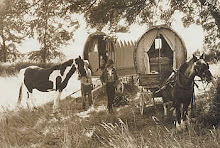
According to Forbes Magazine, there is a list of words that should never be used at work because of their negative connotations. One of these words is "try". Forbes believes "try" is a weasel word, weak, and indicative of a person who is building in an excuse for failure. I disagree. Rational people know that trying is better than not trying, and they know that all anyone can do is try. Taking the will-do attitude is certainly commendable, but sometimes the person who says they "will" do something is really saying he will try. There is no guarantee he will succeed. I would rather have someone tell me he will try rather than say he will, if he knows from the outset that his success is only probable. To say "will" instead of "try" is to buffer the truth so the people in charge can dismiss the item from their worry list. Are our managers, CEO's, and supervisors really that delicate?
The second word an employee should never use according to Forbes is "whatever". I happen to agree with them on this one. There are currently very few ways to use the word that do not suggest a dismissive rude attitude on the part of the speaker.
The next set of offensive words includes "I don't know" and "maybe". According to the article, these words can be used as an excuse for laziness. I don't know about you, but I think maybe sometimes these words mean exactly what they mean. It doesn't make an employee more valuable if he is willing to pretend to know something which he does not know, or to give a definite answer when reality is somewhat less certain. If a person does not know something, it's far better to admit it, and then find out how to access the information. And if something is uncertain, a maybe, it's preferable to admit it. I understand the point in the article that employees should not be allowed to slide by on those words and use them as an excuse for inaction. But, it is what it is. Sometimes maybe we just don't know.
Forbes warns against people who say "I'll get back to you". I wonder what is wrong with the boss who keeps an employee on the payroll who routinely fails to follow up? It makes no sense to me to blame the words. Obviously, this employee is not up to the task and perhaps should be culled from the herd. It's a personnel problem, not a verbiage problem.
"Yes, but" annoys this Forbes writer. However, there are times when it is necessary to clarify a point. "Yes, but" is a useful tool that allows examination of possible obstacles that will need to be addressed or mitigated.
"I guess" and "we'll see" made the list as well. "I guess" does indicate some indecision and could probably be replaced with a clearer sentence. However, bosses may not want to accept this, but oftentimes an employee will use the words "I guess" with an employer who is wrong but cannot tolerate dissent. Using the words "I guess" is a very handy way to distance an employee from the boss's wrongheaded thinking without pissing off said boss. "We'll see" reminds the writer of parents postponing a decision. This is not the employee's issue; it is the boss's. Sometimes we won't know something until we see it. I do agree the concept could be better worded. For instance, it could be said "the answer will soon be apparent, once all the information has come in" or something to that effect.
In conclusion, it's disturbing to think employees have to micromanage very word out of their mouths to avoid upsetting the tender ears of a temperamental boss. More important than the words used by an employee is his or her work product. Judgment of an employee's value to a company should always be performance-based.









